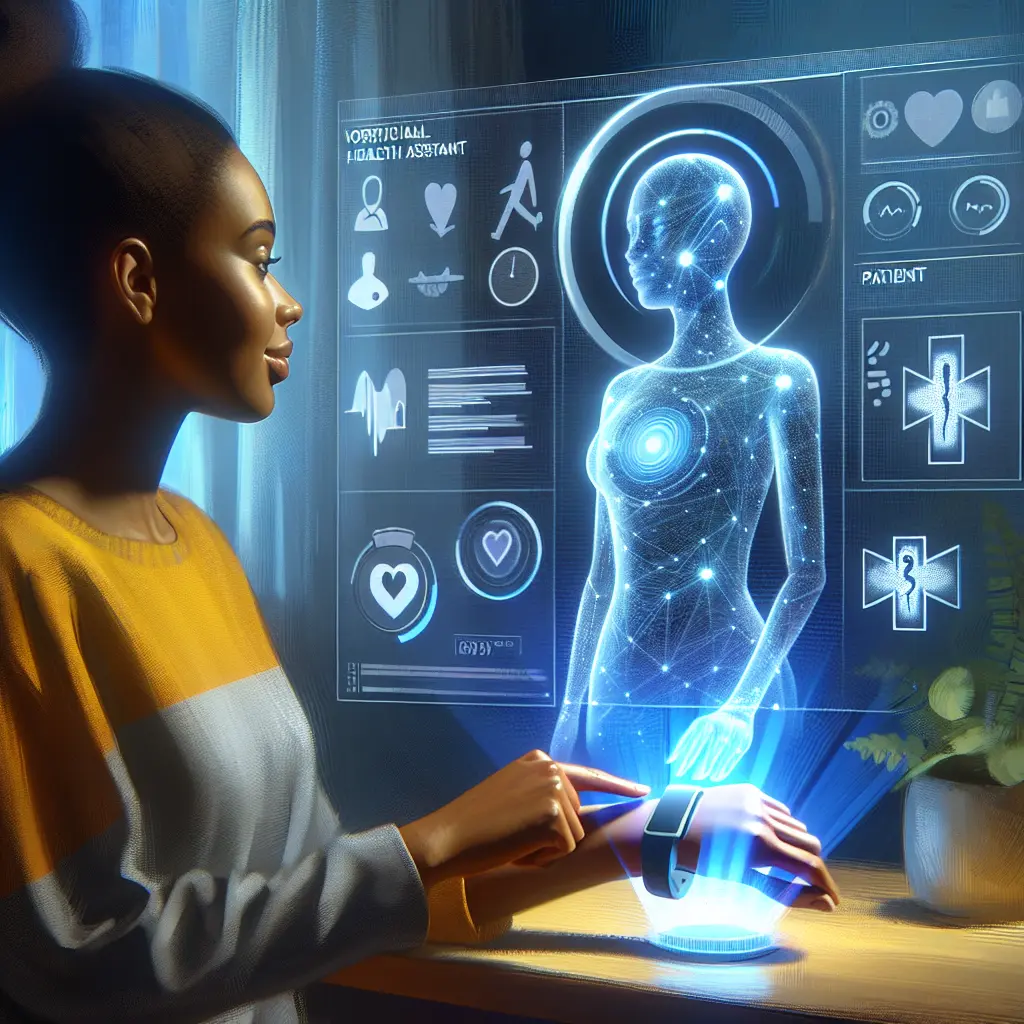
AI-Powered Virtual Health Assistants: Revolutionizing Patient Care
In the rapidly evolving landscape of healthcare, AI-powered virtual health assistants are emerging as pivotal players in revolutionizing patient care. These advanced digital health assistants are reshaping how patients interact with healthcare systems, offering personalized and efficient solutions. As technology continues to advance, these digital health assistants are seamlessly integrating into healthcare systems, leading to significant improvements in patient experiences, healthcare outcomes, and system efficiencies.
The Intersection of AI and Healthcare
The integration of AI in healthcare has been nothing short of groundbreaking. According to a report by Healthcare IT News, the global AI in healthcare market is projected to reach $45 billion by 2026. This growth is mirrored in the rising prevalence of AI-powered virtual health assistants, which streamline processes like appointment scheduling, symptom checking, and chronic disease management.
Telehealth Advancements: Breaking Barriers
Telehealth advancements, fueled by AI healthcare transformation, are pivotal in making healthcare more accessible. A recent study by the American Journal of Managed Care highlights how telehealth services have broken down geographical barriers, offering care to remote areas and underserved populations. This democratization of healthcare access underscores the power of virtual health technology.
Real-Time Personalized Support
AI-driven patient support offers real-time, personalized assistance to patients, significantly enhancing engagement and satisfaction. For instance, a case study from Stanford Health Care demonstrated that patients using virtual medical assistants experienced a 30% improvement in managing chronic conditions compared to traditional methods. This efficiency improves patient outcomes and reduces the burden on healthcare professionals.
The Role of AI in Healthcare Digital Transformation
As the healthcare industry embraces digital transformation, the role of virtual care technology becomes increasingly significant. These AI healthcare solutions are designed to streamline processes, reduce costs, and ultimately improve the quality of care provided to patients.
Streamlining Administrative Processes
AI-powered virtual health assistants set new benchmarks for efficiency by automating routine tasks. For example, smart health assistants can manage appointment reminders, follow-up notifications, and prescription renewals. This automation allows healthcare providers to focus more on patient care rather than administrative duties.
Innovations Across Healthcare Sectors
The implementation of AI in healthcare spans various sectors, each benefiting uniquely from these innovations.
Employee Benefits Administration
In employee benefits administration, the integration of AI can lead to more personalized and efficient healthcare plans. As noted in the Employee Benefits Administration Software Market Forecast, AI-driven tools can analyze vast amounts of data to tailor benefits that best fit employee needs while optimizing costs for employers.
Background Screening and Security
In terms of security and compliance, the Background Screening Software Market emphasizes the importance of AI in ensuring accurate and efficient screening processes. Healthcare facilities can use AI to perform background checks more quickly and accurately, enhancing trust and safety within the system.
Challenges and Opportunities in Virtual Care Technology
While the benefits of virtual care technology are clear, there are also challenges that need addressing. Issues such as data privacy, interoperability, and technological literacy among users must be navigated carefully.
Data Privacy Concerns
The concern over data privacy remains a significant challenge. According to Forbes, ensuring robust data protection mechanisms is crucial as virtual medical assistants handle sensitive patient information.
Interoperability and Integration
Interoperability between different healthcare systems and technologies is another hurdle. Efforts must be made to ensure that AI solutions can seamlessly integrate into existing infrastructures without disrupting services. The Healthcare Information and Management Systems Society stresses the importance of standardizing protocols to facilitate smooth integration.
The Future of AI-Driven Patient Care Innovation
As we look towards the future, the role of AI-powered virtual health assistants in revolutionizing patient care will only grow more pronounced.
Expanding Capabilities
AI technologies are continually evolving, with advancements such as natural language processing and machine learning enhancing the capabilities of virtual health assistants. These advancements enable more intuitive interactions between patients and digital health assistants, offering a more human-like experience.
Enhancing Patient-Centric Care
The ultimate goal of integrating AI into healthcare is to enhance patient-centric care. By providing personalized, efficient, and accessible solutions, virtual care technology is poised to redefine what it means to deliver quality patient care.
Conclusion: Navigating the Future of Patient Care
The transition towards a technologically integrated healthcare system is no longer a trend but a necessity. The synergy between AI-powered virtual health assistants and traditional healthcare practices will define the future of patient care. As we embrace this digital transformation, it is essential to continue exploring innovative solutions while addressing challenges to ensure a responsive, efficient, and patient-centric healthcare ecosystem.
As we navigate this exciting era of transformation, one might ask: How will these technologies shape your next visit to the doctor? Embrace this journey by exploring how AI can improve your health outcomes and share your insights and experiences. Together, we can harness these innovations for a brighter, healthier future.
Feel free to share your thoughts or experiences in the comments below. Your insights could inspire others on this transformative path.
Warm regards,
Rachel Morrison